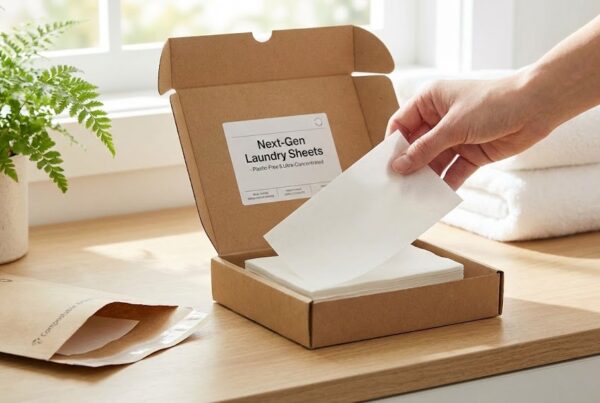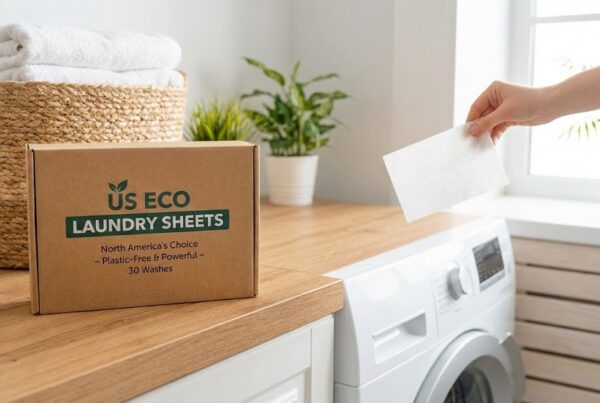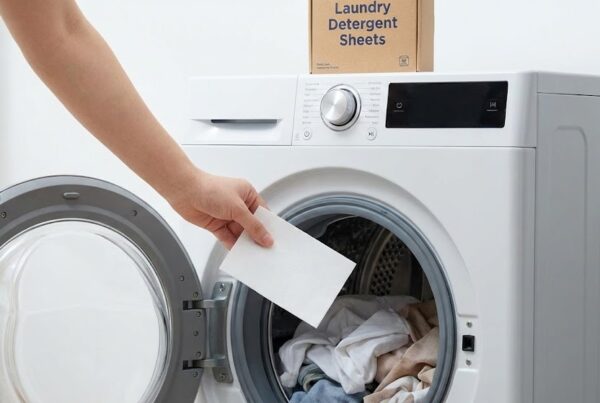Baby laundry detergent sheets and regular laundry detergent sheets are distinct in terms of their ingredients, sensitivity, safety, cleaning strength, and intended use. As eco-friendly alternatives to traditional liquid or powder detergents, detergent sheets are gaining popularity for their convenience and environmental benefits. This article explores the key differences between baby laundry detergent sheets and regular detergent sheets to help consumers make informed decisions.
1. Ingredients
The primary difference between baby laundry detergent sheets and regular detergent sheets lies in the ingredients used. Baby detergent sheets are specially formulated to be free from harsh chemicals that could irritate a baby’s sensitive skin. Common chemicals found in regular detergent sheets, such as phosphates, artificial fragrances, dyes, and optical brighteners, are often omitted from baby detergent sheets. Instead, they rely on milder and more natural ingredients that are less likely to cause skin irritation or allergic reactions.
Baby Detergent Sheets Ingredients:
- Hypoallergenic ingredients: These sheets are formulated with natural or plant-based surfactants that are gentler on the skin, such as those derived from coconut oil or cornstarch. These ingredients are designed to break down stains effectively without being too harsh on the delicate skin of babies.
- Free from dyes and fragrances: Artificial fragrances and dyes are a common cause of skin irritation, especially for infants. Baby detergent sheets are usually fragrance-free or use mild, natural fragrances to avoid potential allergic reactions.
Regular Detergent Sheets Ingredients:
- Stronger cleaning agents: Regular detergent sheets may contain more powerful surfactants and enzymes to handle a broader range of stains. These may include synthetic chemicals designed to break down oil, grease, and food stains.
- Fragrances and dyes: Many regular detergent sheets are scented to leave clothes smelling fresh, and they may also include optical brighteners to make clothes appear cleaner. However, these additives can leave residues on clothing, which may cause skin irritation for individuals with sensitive skin.
2. Sensitivity and Safety
The safety of a laundry product is especially important when it comes to baby clothes. Baby laundry detergent sheets are designed with skin sensitivity in mind, as infants have thinner and more fragile skin compared to adults. Their skin is more prone to absorbing chemicals, which increases the risk of irritation, rashes, or allergies if exposed to harsh ingredients.
In contrast, regular laundry detergent sheets are not necessarily formulated for sensitive skin. While they may be safe for most adults, they can be problematic for individuals with sensitive skin or pre-existing skin conditions, such as eczema or dermatitis.
Baby Laundry Detergent Sheets Safety:
- Dermatologically tested: Many baby laundry detergent sheets undergo rigorous testing to ensure they are safe for a baby’s delicate skin. They are often labeled as hypoallergenic or dermatologist-approved, which reduces the likelihood of adverse skin reactions.
- Chemical-free: Baby detergent sheets are usually free from harsh chemicals such as parabens, phosphates, chlorine, and formaldehyde, making them a safer choice for infants.
Regular Laundry Detergent Sheets Safety:
- May contain stronger chemicals: Regular detergent sheets might contain chemicals that are less suited for sensitive skin. Even though they offer superior cleaning performance, their chemical components can be too harsh for babies and may cause skin irritation, especially when residues are left behind on clothing.
3. Cleaning Power
One of the most significant differences between baby laundry detergent sheets and regular ones is the level of cleaning power. Baby detergent sheets are primarily designed to handle common baby-related stains such as milk, urine, and food spills. These detergents are mild, yet effective enough to remove these types of stains without compromising on safety.
Regular detergent sheets, on the other hand, are designed to tackle a broader range of tough stains, including oil, mud, and grease, which are more commonly encountered by adults. Their stronger formulation makes them ideal for households that deal with heavily soiled laundry. However, this higher cleaning power can come at the cost of using harsher ingredients, which may not be ideal for a baby’s sensitive skin.
Baby Detergent Sheets Cleaning Power:
- Mild cleaning: While gentle, baby detergent sheets are still effective at cleaning light to moderate stains typically found on baby clothing.
- Less residue: Since baby laundry detergent sheets are formulated with simpler ingredients, they tend to leave less residue on clothing, further reducing the risk of skin irritation.
Regular Detergent Sheets Cleaning Power:
- Stronger stain removal: Regular detergent sheets often contain enzymes and other active cleaning agents capable of removing stubborn stains. However, this extra power might leave chemical residues that can be harmful if not thoroughly rinsed.
4. Target Audience and Use Cases
Baby laundry detergent sheets are designed for infants, toddlers, and anyone with sensitive skin. Parents often choose these products to ensure their babies are not exposed to harsh chemicals that could cause irritation or allergic reactions. However, adults with sensitive skin or those prone to allergies may also benefit from using baby laundry detergent sheets.
Regular detergent sheets, in contrast, are designed for general use, making them suitable for a wider range of laundry needs. They are ideal for cleaning adult clothing, especially those with tougher stains from daily activities such as cooking, sports, or outdoor work.
Baby Laundry Detergent Sheets Usage:
- Perfect for baby clothes: These sheets are gentle enough for delicate fabrics and baby clothing, ensuring that the baby’s skin is protected from potentially harmful residues.
- Ideal for sensitive skin: Even for adults, baby detergent sheets can be a good option if you suffer from skin sensitivities or allergies.
Regular Laundry Detergent Sheets Usage:
- For everyday laundry: These sheets are ideal for households with varied laundry needs, including heavily soiled garments.
- Not recommended for baby clothes: Due to the stronger chemicals used, regular detergent sheets are not advised for washing baby clothes.
Conclusion
The primary differences between baby laundry detergent sheets and regular laundry detergent sheets lie in their ingredients, sensitivity, safety, and cleaning power. Baby detergent sheets are formulated to be gentle, safe, and hypoallergenic, making them suitable for infants, toddlers, and people with sensitive skin. Regular detergent sheets, while offering stronger cleaning capabilities, may not be suitable for delicate or sensitive skin due to the inclusion of harsher chemicals. Choosing between the two depends on the specific needs of your household—whether you’re focused on safety for babies or seeking powerful stain removal for daily laundry tasks.





